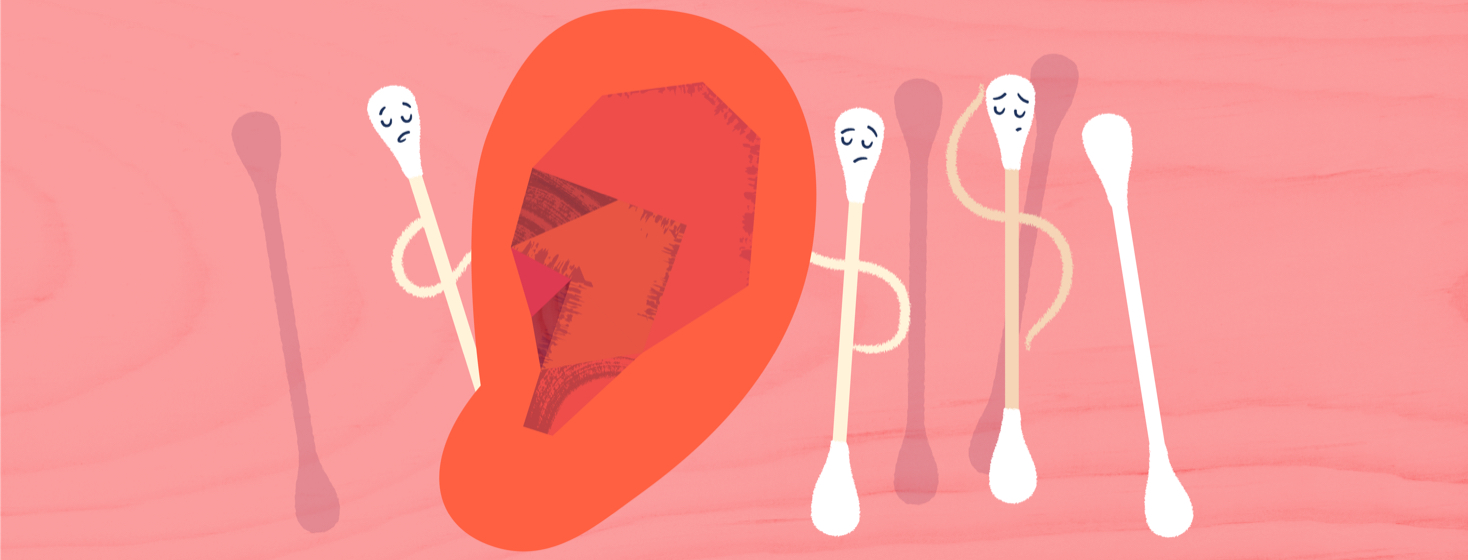Psoriasis in the Ear Canal
Psoriasis doesn't discriminate. In any area of the body where there is skin, psoriasis can appear. Currently, I have psoriasis, where the sun doesn't shine. I'm not talking about genital psoriasis! Today, I am currently facing another topic worthy of discussion. I am talking about psoriasis in the ear canal.
I have managed my ear psoriasis with the same strategies for the last 25 years, and it wasn't until my hearing worsened did I learn my strategies for managing ear psoriasis were all wrong.
Was my hearing loss connected to my ear psoriasis?
I began to need certain things repeated to me. I would look at someone talking and find myself struggling to hear them. Was I going deaf? Was something happening inside my ear related to my psoriasis? I decided to talk to my doctor. Turns out, my hearing was a lot worse than I had realized.
This or That
Does psoriasis have an impact on your confidence?
Quality of hearing is a question I don't think dermatologists really ask. In the last thirty years, not one of my dermatologists or doctors has ever asked me about hearing loss, which is another one of those questions that should be asked more frequently.
Even more surprising, the problem itself was not psoriasis-related - although temporary hearing loss can be. What exactly was causing my problem? A fluid accumulation behind my eardrum. What caused it? Let's dive in.
What causes psoriasis-related hearing loss?
I have always managed the frustrating itch and thick feeling inside my ears by using a cotton swab on very soft scales.
Getting right into my ear with a cotton swab gave me a feeling of relief that is similar to the way a dog loses control of one of its legs when you scratch it in just the right place. The problem is that this isn't a recommended practice, and for a good reason.
When we have psoriasis scaling inside the ear and insert a cotton swab, we risk pushing scales further into the ear. This can lead to compaction. This thicker mass can create a blockage which can cause further pressure on your ear canal, causing more itching and can hinder sound waves from reaching your inner ear and leading to hearing loss.
Featured Forum
View all responsesWhat my doctor had to say about managing ear psoriasis
I knew I was in trouble with my doctor when he scolded me. He stated: "Your ear canal is squeaky clean. What have you been doing in there?" So much for cleanliness being next to godliness. I suppose this is another case of the body being able to clean its own ear canal - and really - if we can, we should trust our body to do the work.
We're not supposed to stick anything in our ear to clean it. Our body needs the build-up to keep out excess debris and protect the skin. This is especially true when managing psoriasis symptoms in and around the ear.
Here's the thing. I tried. I tried really hard. After about six weeks, I gave in. I couldn't do it. I needed relief that only a cotton swab could bring.
Let's take a look at treatment options for ear psoriasis
The ears are a sensitive part of the body, especially the ear canals. There are several different treatment options, but its important to make sure your doctor approves of them. We don't want to go around just sticking any old steroid in our ears - we only have two ears, after all!
- Topicals: You may be prescribed a mild topical steroids, vitamin D agents or Calcineurin inhibitors.
- U.V. Therapy: This isn't going to get into your ear canal, but it will helpp with psoriasis in the external parts of the ear. There are small handheld devices that may be suitable.
- Systemic options: Your dermatologist may refer you for more systemic therapy if these symptoms are significantly impacting your quality of lifw.
Start the conversation at your next appointment. Your doctor will be able to suggest a treatment to bring you relief. This conversation can also help keep the hearing loss connection top of your mind.

Join the conversation